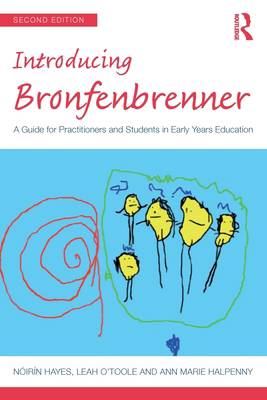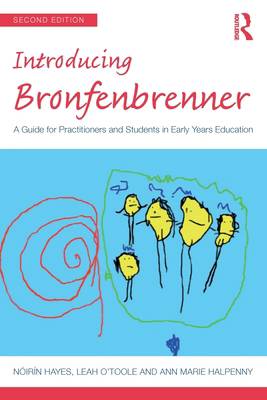
- Afhalen na 1 uur in een winkel met voorraad
- Gratis thuislevering in België vanaf € 30
- Ruim aanbod met 7 miljoen producten
- Afhalen na 1 uur in een winkel met voorraad
- Gratis thuislevering in België vanaf € 30
- Ruim aanbod met 7 miljoen producten
Introducing Bronfenbrenner
A Guide for Practitioners and Students in Early Years Education
Nóirín Hayes, Leah O'Toole, Ann Marie HalpennyOmschrijving
The influence of Urie Bronfenbrenner's model of development has been extensive in different areas of developmental science and education, and it continues to inform contemporary research and practice in many fields, including early childhood education. This book presents a comprehensive introduction to Bronfenbrenner's model of development in reference to early childhood education. It draws on practice-based research to identify and animate key elements of the model impacting on early educational pedagogy and practice.
This new and revised second edition identifies and explores the key elements of Bronfenbrenner's model by referring to contemporary understandings of how children learn. It also includes a new chapter which considers repositioning early childhood education settings as interactive, relational spaces and provides a broader focus on the concept of transitional experiences in children's daily lives. Along with new content on leadership and associated roles and practices in early childhood education, this book illustrates how Bronfenbrenner's model can help bring quality to early learning environments and show how it can be incorporated into daily work with young children through vignettes, case studies and examples of good practice.
Introducing Bronfenbrenner serves as an ideal read for professionals around the world working with children in early childhood settings, and students training to become early childhood professionals at degree level on undergraduate programmes, as part of vocational training or as part of continuous professional development.
Specificaties
Betrokkenen
- Auteur(s):
- Uitgeverij:
Inhoud
- Aantal bladzijden:
- 198
- Taal:
- Engels
- Reeks:
Eigenschappen
- Productcode (EAN):
- 9781032162591
- Verschijningsdatum:
- 23/11/2022
- Uitvoering:
- Paperback
- Formaat:
- Trade paperback (VS)
- Afmetingen:
- 156 mm x 234 mm
- Gewicht:
- 303 g

Alleen bij Standaard Boekhandel
Beoordelingen
We publiceren alleen reviews die voldoen aan de voorwaarden voor reviews. Bekijk onze voorwaarden voor reviews.











